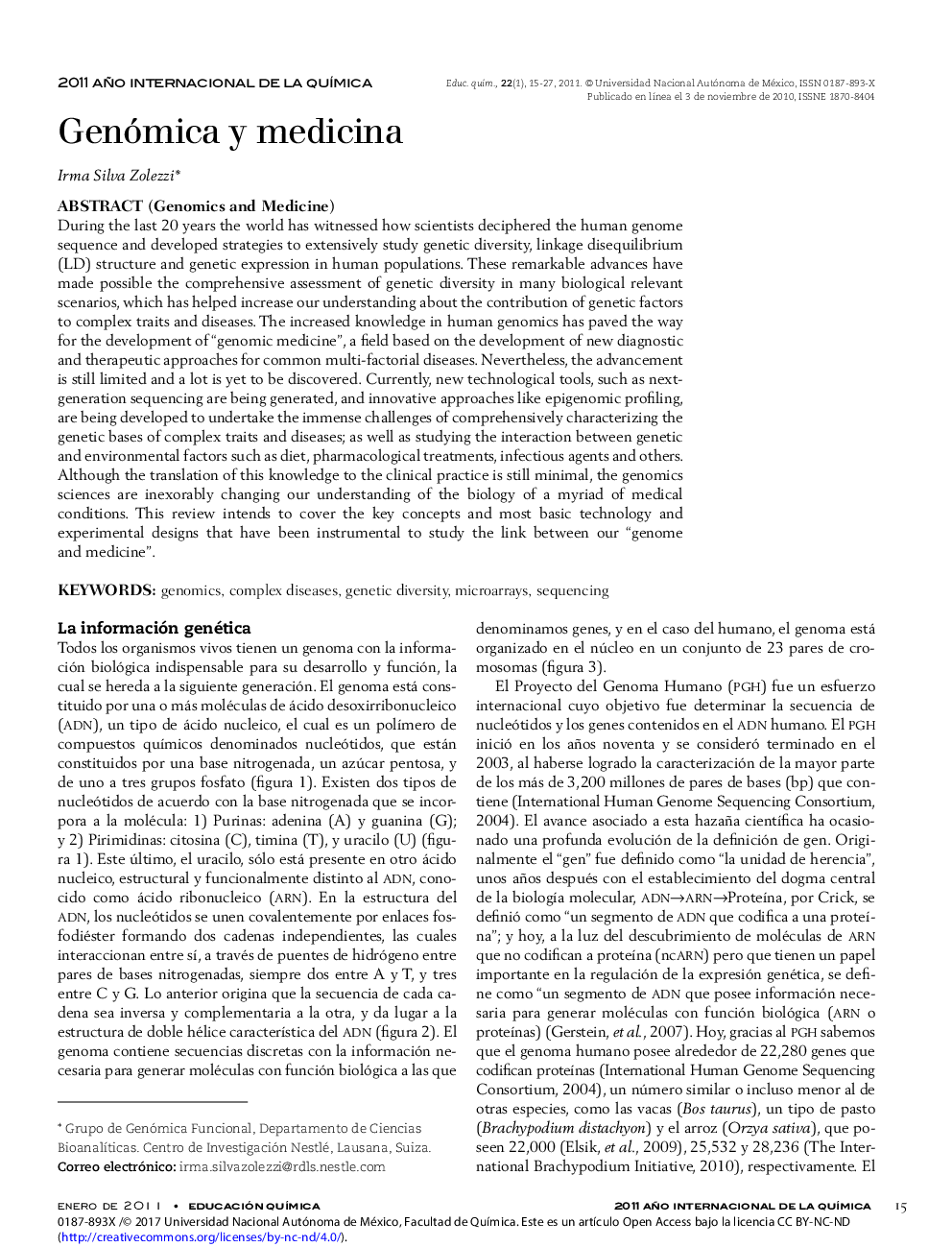| Article ID | Journal | Published Year | Pages | File Type |
|---|---|---|---|---|
| 7565649 | Educación Química | 2011 | 13 Pages |
Abstract
During the last 20 years the world has witnessed how scientists deciphered the human genome sequence and developed strategies to extensively study genetic diversity, linkage disequilibrium (LD) structure and genetic expression in human populations. These remarkable advances have made possible the comprehensive assessment of genetic diversity in many biological relevant scenarios, which has helped increase our understanding about the contribution of genetic factors to complex traits and diseases. The increased knowledge in human genomics has paved the way for the development of “genomic medicine”, a field based on the development of new diagnostic and therapeutic approaches for common multi-factorial diseases. Nevertheless, the advancement is still limited and a lot is yet to be discovered. Currently, new technological tools, such as nextgeneration sequencing are being generated, and innovative approaches like epigenomic profiling, are being developed to undertake the immense challenges of comprehensively characterizing the genetic bases of complex traits and diseases; as well as studying the interaction between genetic and environmental factors such as diet, pharmacological treatments, infectious agents and others. Although the translation of this knowledge to the clinical practice is still minimal, the genomics sciences are inexorably changing our understanding of the biology of a myriad of medical conditions. This review intends to cover the key concepts and most basic technology and experimental designs that have been instrumental to study the link between our “genome and medicine”.
Related Topics
Physical Sciences and Engineering
Chemistry
Analytical Chemistry
Authors
Irma Silva Zolezzi,
